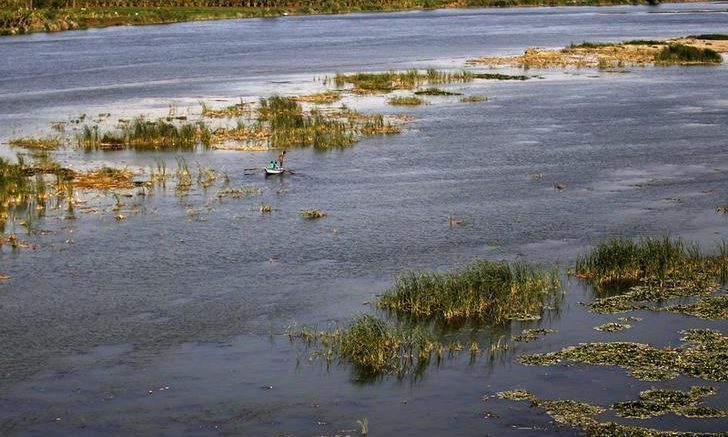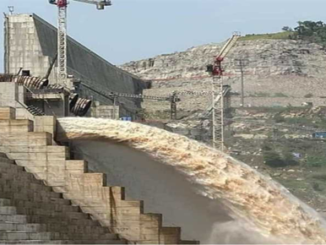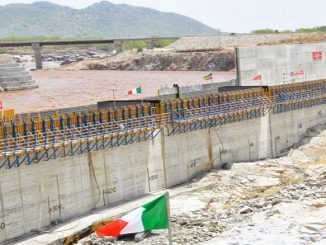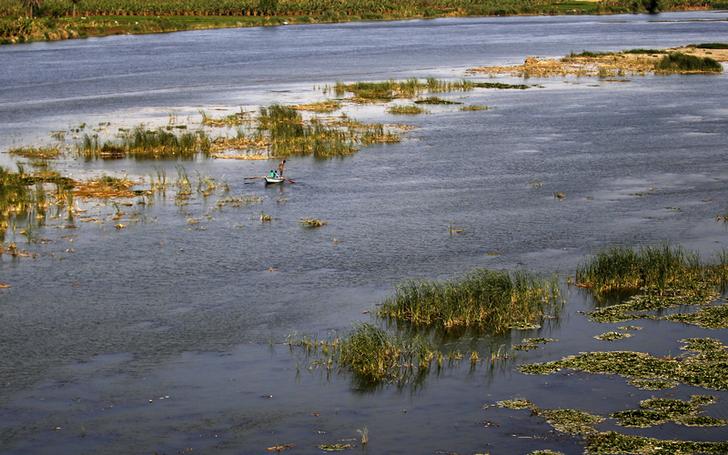
Sudanese Foreign Minister Ibrahim Ghandour said,”Egypt, Sudan, and Ethiopia have surpassed their disputes over the Grand Ethiopian Renaissance Dam (GERD), and have moved to a new cooperative phase in economic, political, and security-related fields,” according to Daily News Egypt.
Ghandour added in a press statement that the three countries are currently considering the cooperation plans suggested by Egypt. Ghandour added that there are upcoming events that will boost this cooperation, such as an Egyptian-Sudanese summit held in Cairo in October, as well as a tripartite summit in which the three heads of state will announce a new development fund between the three countries.
On the other hand, the former assistant minister of foreign affairs Mona Omar commented on Ghandour’s statements, saying that the disagreement between Egypt and Ethiopia is focused on different issues rather than over the GERD. For the issue of the dam, the two countries will rely on consultation offices.
However, Nader Nour Al-Din, a professor of water resources said that these consultation offices will not prove fruitful, as these studies will take 12 months to conduct, by which time Ethiopia will have completed construction of the dam.
In March 2015, Egypt, Sudan, and Ethiopia signed a declaration of principles in AL-Khartoum which is considered an agreement on continuing the dam construction, together with conducting technical studies on protecting the water shares of the three Nile basin countries.
The Ethiopian government started the Renaissance Dam project on April 2, 2011 on the Blue Nile -one of the River Nile’s main resources- on the Ethiopian-Sudanese borders, 980 km away from Addis Ababa, the country’s capital.
The Ethiopian Communication Affairs Minister, Getachew Reda, said last March that his country almost completed 70% of the construction of the hydro power Renaissance Dam. In an interview with Asharq al-Awsat newspaper, the Ethiopian minister replied when asked about the Renaissance Dam crisis with Egypt saying, “Sudan, Ethiopia, and Egypt have agreed on the technical committees. Furthermore, we haven’t promised to stop construction work pending the completion of technical studies.” He added that although these committees are specialized in studying whether the dam would harm Sudan or Egypt, they don’t decide whether Ethiopia will build the dam or not. Reda stressed that “The dam will not harm the interests of Sudan or Egypt. “The Egyptians finally understood that it is necessary to reach some kind of understanding, which compels us to work together,” he said.
Reda stated that the Renaissance Dam became a reality, “No matter what happens, things will not change. The dam has become a reality. The people of the three countries will benefit from it,” he said. He also added that some (parties) believe that they will be harmed by it, and then this is not Ethiopia’s problem.
On the other hand, Egypt’s Ministry of Water Resources and Irrigation has declared a state of extreme emergency from May to next August in preparation for the summer crop season.
It seems that the construction of the Grand Ethiopian Renaissance Dam is a fact that cannot be denied and that the coming summits won’t be more than diplomatic meetings. Nothing will change the reality that Egypt’s historical water shares will be badly affected.It is noteworthy that the second phase of the Renaissance Dam will be a real catastrophe to Egypt as it will work on storing 64 billion cubic meters of the Nile River waters.



